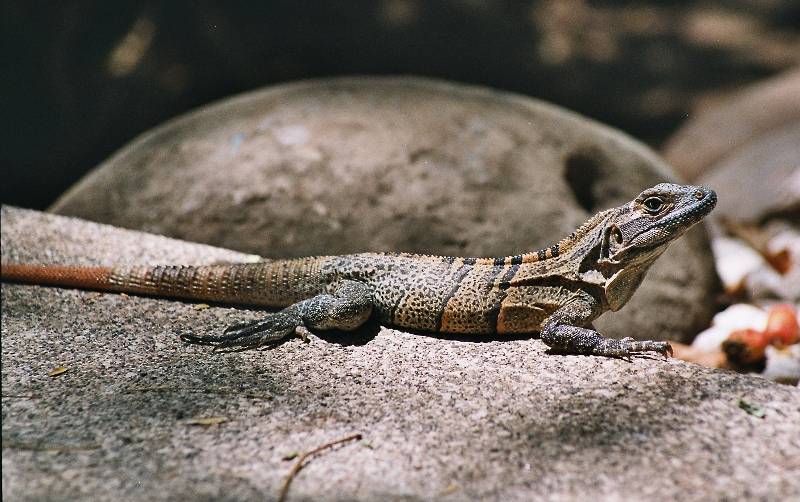Here are some things you might want to know about iguanas:
1) They are better suited to eating plants – some sources still continue to say that iguanas are omnivores. To say that iguanas will benefit from eating both plant and animal products would be mistake. This is because the metabolism of the iguana is better suited to absorbing plant proteins. The proteins found in animal products are just too complex to be properly utilized by iguanas. This means that not all proteins can be absorbed by their bodies as nutrients.
So what happens to the unabsorbed proteins? Well, it is usually stored as uric acid. This uric acid can have very harmful effects on your iguana. A build up of uric acid can cause gout. Getting rid of animal protein can also be very hard work for an iguana’s kidneys. This means that feeding animal products to your iguana may cause it to have kidney problems. This shortens the iguana’s life.
2) Iguanas can be trained – many people think that iguanas are stupid animals. However, people who own iguanas can actually attest to the opposite. A pet iguana can be trained to do many different things. Some people have toilet-trained their iguanas. Other people have trained their iguanas to do different types of tricks. Some iguanas can even find their way home!
These feats attest to the fact that iguanas are far from stupid. Sometimes, people just tend to judge other creatures as being lower than them.

3) They can grow up to six feet long – most people think that iguanas will always fit their cages. However, when an iguana is properly taken care of, it will grow up to six feet long! This means that you will have to prepare a habitat that can accommodate an iguana’s growth. Some people may not be able to immediately provide a large enclosure for a six foot iguana. However, you should realize that an iguana will grow to that size and so you must always plan ahead.
4) Iguanas are arboreal – Wild iguanas spend most of their time on trees. What are the implications of this? Well, an iguana owner has to simulate an iguana’s habitat. This means that you need to put some climbing materials on your iguana’s enclosure. Of course, you don’t have to put real trees inside the enclosure. However, you should consider placing a post or something that your iguana can climb on.
5) Iguanas need sunlight – some people think that artificial lights are good substitutes for sunlight in an iguana enclosure. However, what you need to know is that iguanas need sunlight not just for the visible light. An iguana utilizes UVA and UVB light in absorbing nutrients properly. This is because the UVB light triggers a chemical reaction in an iguana’s skin which helps it make the vitamin D3. This vitamin is used to properly process calcium in the bloodstream.
These are just some of the little quirks that you may want to know about iguanas. As you can see, taking care of an iguana is not an easy task. In order to take proper care of an iguana, people should learn as much about them as possible. By taking these little details into consideration while caring for an iguana, you would assure the continued health of the iguana.
